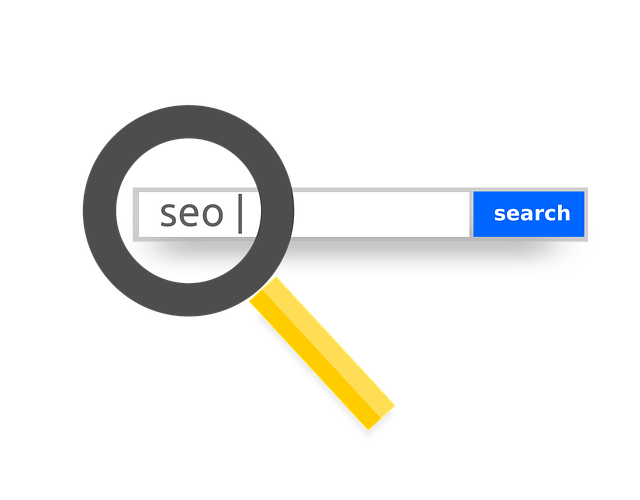Off-Page SEO focuses on external strategies to improve a website's authority and attract traffic. It involves acquiring high-quality backlinks from reputable sources, which signals search engines of content value and trustworthiness, boosting rankings. Effective methods include creating valuable content, guest blogging, influencer collaborations, and leveraging social media for natural backlinks. Analyzing competitor backlink profiles helps identify successful strategies and potential partnerships. Avoiding common mistakes like link diversity neglect, spammy practices, and inadequate social engagement is crucial. Tracking KPIs such as domain authority and referral traffic using tools like Google Search Console and Ahrefs enables data-driven adjustments to Off-Page SEO efforts.
Off-Page SEO optimization is a powerful strategy that goes beyond your website’s boundaries, focusing on external factors influencing search engine rankings. This article delves into the intricate world of Off-Page SEO, offering a comprehensive guide for digital marketers and business owners alike. We explore key objectives, uncover the impact of high-quality backlinks, provide actionable strategies for link building, and equip readers with tools to analyze competitors’ profiles. Additionally, we shed light on common mistakes to avoid and introduce methods for tracking success in this dynamic landscape.
Understanding Off-Page SEO: Definition and Key Objectives

Off-Page SEO refers to optimization strategies that occur outside of a website, focusing on building authority and driving relevant traffic through various online channels. It’s a crucial aspect of search engine optimization (SEO) as it influences how search engines perceive and rank websites in their results pages. The key objectives of Off-Page SEO are to increase brand visibility, establish trustworthiness, and generate high-quality backlinks from authoritative sources.
Backlinks play a significant role here, acting as digital votes of confidence from one site to another. When reputable websites link to yours, it signals to search engines that your content is valuable and trustworthy. This external signal contributes to improving a website’s domain authority, ultimately leading to better search rankings over time.
The Role of High-Quality Backlinks in Boosting Your Rankings

In the realm of Off-Page SEO, high-quality backlinks play a pivotal role in enhancing your website’s rankings on search engines. These links act as votes of confidence from other reputable websites, signaling to search algorithms that your content is valuable and trustworthy. Obtaining backlinks from authoritative sources, such as industry leaders or well-regarded publications, can significantly boost your site’s authority and visibility.
When high-quality backlinks point to your website, it improves your domain authority, which is a crucial factor in how search engines rank pages. This process involves analyzing the links pointing to your site (link profile) and determining its overall quality and relevance. A strategic approach to building these backlinks through guest blogging, influencer collaborations, or creating shareable content can lead to better organic reach and higher rankings over time.
Effective Strategies for Building Quality Backlinks

Building quality backlinks is a cornerstone of successful Off-Page SEO. The strategy involves attracting natural, relevant links from high-authority websites in your niche. One effective approach is to create valuable content that others want to link to. This could be through thorough research, offering unique insights, or presenting information in an innovative format. Engaging with industry influencers and experts can also facilitate backlink opportunities—guest blogging, interviews, or collaborative projects are great ways to connect with them.
Additionally, leveraging social media platforms and online communities can help build relationships with potential link partners. Actively participating in discussions, sharing valuable content, and establishing yourself as a thought leader within these circles increases the likelihood of earning backlinks naturally. Remember, quality always trumps quantity; focusing on acquiring backlinks from reputable sources will significantly boost your Off-Page SEO efforts.
Analyzing Competitor Backlink Profiles for SEO Insights

Analyzing competitor backlink profiles is a powerful strategy within off-page SEO. By examining the backlinks that rival websites have acquired, you gain valuable insights into their success and identify opportunities for your own optimization. Tools like Ahrefs or SEMrush allow you to uncover high-quality links, understand the anchor text used, and assess the authority of each referring site. This process helps you discover content gaps in your strategy and reveals potential partnerships or guest blogging opportunities.
Through competitive analysis, you can identify industry influencers and reputable sources that have linked to your competitors. By understanding their strategies, you may uncover unique backlink acquisition methods, allowing you to adapt and implement effective techniques. It’s a strategic approach that enhances your off-page SEO efforts by learning from successful models in your niche.
Common Off-Page SEO Mistakes to Avoid

Off-Page SEO, while crucial for enhancing search engine rankings, is often riddled with common mistakes that can hinder progress. One of the most prevalent errors is neglecting link diversity. Websites that earn backlinks from similar sources lack variety, signaling to search engines that the site may not offer a diverse and valuable resource. Another mistake is engaging in spammy practices, such as buying links or using low-quality content to attract backlinks, which can result in penalties and damage your site’s reputation.
Additionally, overlooking the importance of social media engagement and brand mentions can be detrimental. Social signals play a significant role in Off-Page SEO, and a strong online presence on relevant platforms can improve your site’s visibility. Failing to monitor and claim brand mentions across the web means missing out on potential high-quality backlinks and valuable online exposure.
Measuring and Tracking Off-Page SEO Success

Measuring off-page SEO success involves tracking key performance indicators (KPIs) that showcase your strategy’s effectiveness. These metrics help understand how your efforts are impacting your website’s visibility and authority in search engine results pages (SERPs). Some essential KPIs to monitor include domain authority, which is a measure of your site’s overall strength and trustworthiness; backlink profile, analyzing the quality and quantity of incoming links from other websites; and referral traffic, gauging visitors directed to your site from external sources.
Tools like Google Search Console, Ahrefs, SEMrush, or Moz can assist in gathering these insights. They provide detailed reports on your website’s backlinks, referring domains, and overall authority growth over time. Regularly reviewing and analyzing these data points enable you to make informed decisions, adjust your off-page SEO strategy, and ultimately enhance your site’s ranking potential.
